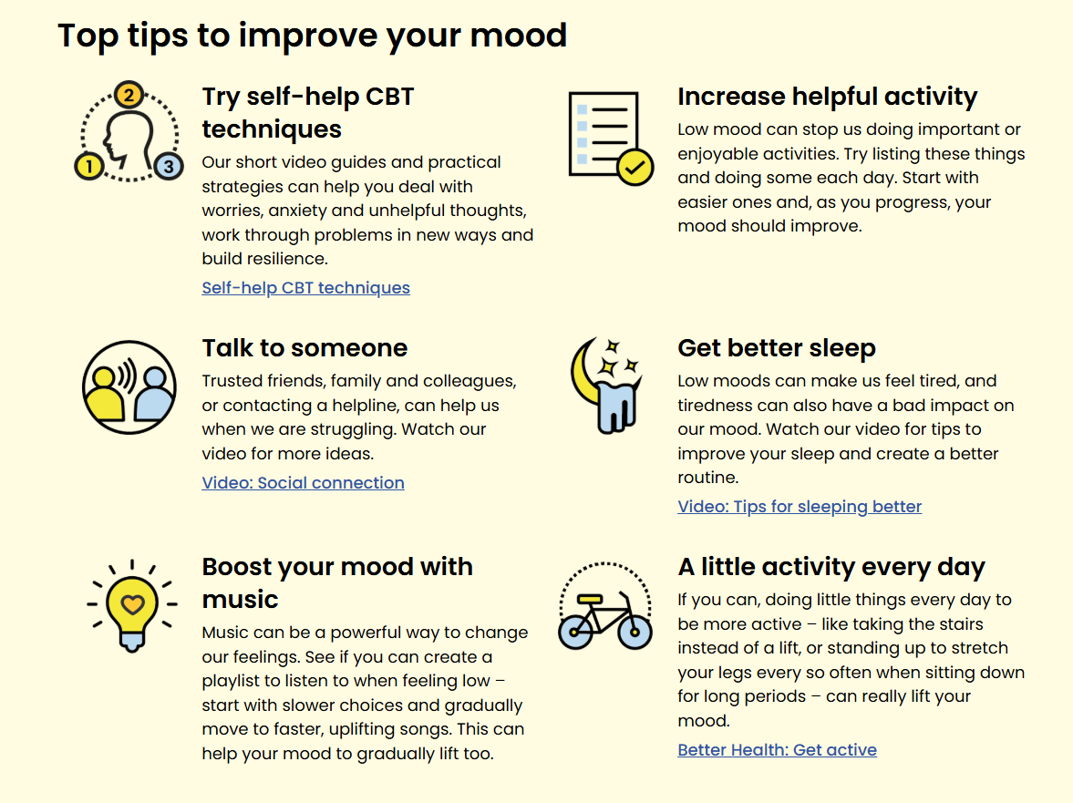Low Mood and Depression
Important: Urgent Mental Health Support
If you or someone else is in danger, call 999 or go to A&E now. If you need help urgently for your mental health, but it's not an emergency, get help from NHS 111 online or call 111 and select the mental health option, or contact one of the organisations below to get support straight away.
What is Low Mood?
Low mood refers to a temporary emotional state where a person feels sad, down, or lacking in energy and motivation. It's a common experience that most people go through from time to time.
Signs of Low Mood:
-
Feeling sad, hopeless, or tearful
-
Feeling tired or lacking energy
-
Trouble concentrating or making decisions
-
Loss of interest in things you usually enjoy
-
Difficulty sleeping or sleeping too much
-
Feeling more irritable than usual
-
Low self-esteem or feeling worthless
A low mood often improves on its own after a few days or with some positive changes like rest, social support, or self-care. However, if it lasts for two weeks or more, or starts to interfere with daily life, it could be a sign of depression, which may require professional support.
What is Depression?
Depression is a common but serious mental health condition that affects how a person feels, thinks, and behaves. It's more than just feeling sad or low for a few days — it's a persistent feeling of sadness or a loss of interest in things you normally enjoy, lasting for weeks or longer.
Common symptoms of depression:
-
Ongoing sadness, emptiness, or hopelessness
-
Losing interest in hobbies, activities, or socialising
-
Feeling tired all the time or having little energy
-
Trouble sleeping or sleeping too much
-
Changes in appetite or weight
-
Difficulty concentrating or making decisions
-
Feelings of worthlessness, guilt, or self-blame
-
Thoughts of self-harm or suicide (in severe cases)
Depression can range from mild to severe and can affect anyone, at any age or stage of life. It's caused by a mix of factors, such as stressful life events, genetics, brain chemistry, and personality.
If you relate to the information above and have been feeling these symptoms for weeks or longer please contact your GP to seek support or reach out to organisations in the resources below.
